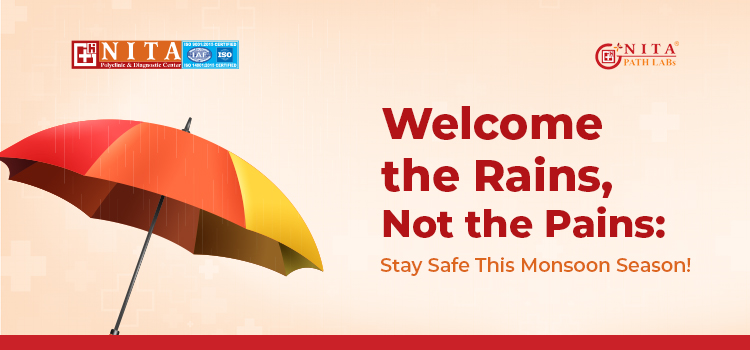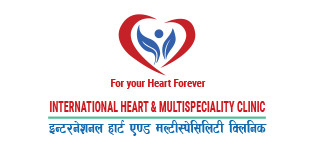Stay Safe This Monsoon Season!
- 2024-08-01
The monsoon season brings refreshing rains and
lush greenery, but it also requires us to stay mindful of our health and
safety. While it's a time to enjoy nature's bounty, we must also take extra
care to protect our well-being.
The monsoons bring much-needed relief from the
summer heat, but they also usher in a period of heightened health risks. The
increased moisture and stagnant water create ideal breeding grounds for
disease-causing organisms, leading to a surge in infectious diseases.
The heavy rains following the dry period facilitate the growth of germs in the environment, thereby increasing the risk of several water-borne diseases and seasonal diseases such as diarrhea, dengue, and many others.
Know Your Monsoon Illnesses
- Typhoid: A bacterial infection caused by Salmonella
Typhi bacteria, spread through contaminated food or water. Symptoms
include high fever, headache, abdominal pain, diarrhea, loss of appetite,
and weakness.
- Dengue: A viral infection caused by the Aedes
mosquito. Symptoms include high fever, severe headache, and joint and
muscle pain.
- Diarrhea: While diarrhea can occur at any time of
the year, poor sanitation and contaminated water during the monsoon
increase the risk. Symptoms include loose watery stool, abdominal cramps,
mucus in stool, and nausea.
- Malaria: A parasitic infection caused by the bite
of infected female Anopheles mosquitoes. Symptoms include high
fever, chills, headache, body aches, and fatigue.
- Influenza: Also known as the flu, influenza is a
viral disease that attacks the respiratory system and can result in severe
infection. Symptoms include fever with chills, runny nose, aching muscles,
dry cough, and sore throat. If not treated, it can lead to difficulty in
breathing, chest pain, and seizures.
- Conjunctivitis: Also known as pink eye, conjunctivitis can
be caused by viruses or bacteria. Due to increased moisture in the air
during the monsoon, the risk of conjunctivitis rises significantly.
Symptoms include redness, swelling, itching, pain, and discharge from the
eyes.
- Urinary Tract
Infection (UTI): UTIs
occur in any part of the urinary system, including the kidneys, ureters,
bladder, and urethra. They are commonly caused by bacteria entering the
urinary tract through the urethra and multiplying in the bladder.
How to Prevent These Monsoon Diseases
Some effective ways to prevent the
aforementioned monsoon diseases include:
- Close windows
and doors in the evening, as mosquitoes are most active during and after
sunset.
- Use mosquito
nets while sleeping.
- Wear
full-sleeved clothes to keep your body covered.
- Use repellents
containing 50% DEET, picaridin, or para-menthane-diol, as they are
effective against mosquitoes and other insects.
- Empty and dry
containers such as coolers, planters, garbage containers, and buckets to
prevent mosquito breeding in stagnant water.
- Add vitamin C to
your diet or use over-the-counter supplements to help boost immunity.
- Get vaccinated
against influenza by receiving a flu shot every year.
- Drink filtered
water.
- Avoid eating
uncovered foods from roadside vendors.
- Wash your hands
with soap and water before eating.
What Are the Signs That May Indicate the Need to Visit a Doctor?
Dr. Anish Mahato, a general physician, advises,
"If a patient experiences severe diarrhea (loose motions), persistent
headache, or severe vomiting, they must visit a doctor for further
treatment."
Most monsoon infections are self-resolving;
however, if left unchecked and untreated, they can develop into severe,
life-threatening complications. To reduce the risk of these infections, keep
your surroundings clean, avoid water stagnation, disinfect standing water, and
use mosquito repellents.
Welcome the Rains, Not the Pains: Stay Safe This
Monsoon Season!
For more information:
- Book an online
appointment with our physician.
- Book our fever
package online.
Medically
Reviewed by:
Dipendra Shah, PhD Scholar, Laboratory Medicine


























Leave Comment